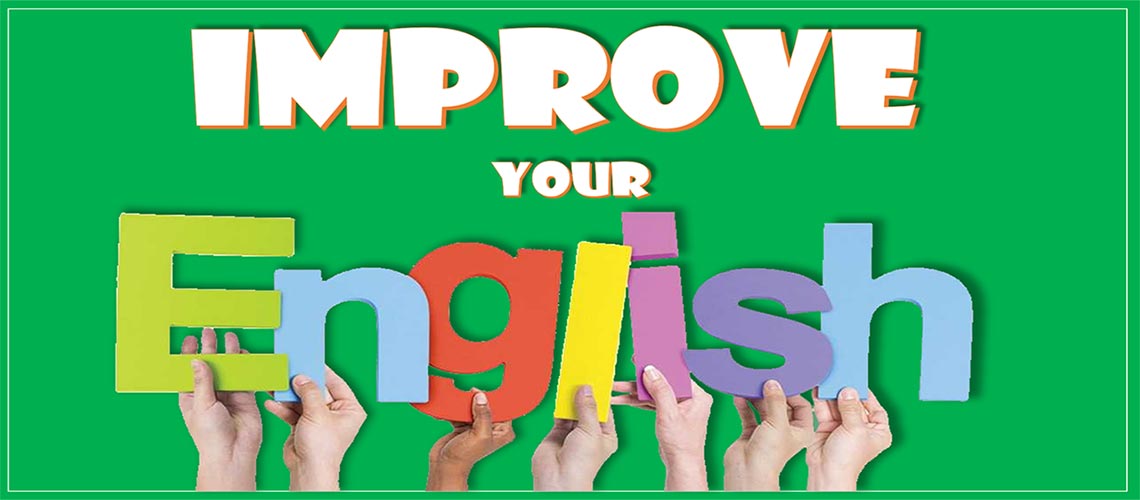How to Effectively Improve Your English
- May 8, 2024
- Posted by: Teacher Vlad
- Category: English ,

Have you ever felt the frustration of wanting to express yourself clearly in English, but struggling to find the right words or stumbling over grammar rules? You’re not alone! Millions of people around the world are dedicated to improving their English, but the journey can feel overwhelming at times. This comprehensive guide is here to empower you on your path to English fluency. We’ll delve into the common mistakes learners make, explore effective strategies for improvement, and equip you with a treasure trove of resources and tools to elevate your English skills.
Stumbling Blocks on the Road to Fluency: Common Mistakes Learners Make
The beauty of language lies in its complexity, but it can also lead to some common pitfalls for learners. Let’s explore some of the most frequent mistakes and how to overcome them:
- Grammar Gremlins: Subject-verb agreement, verb tenses, and article usage (a/an/the) are some of the grammar areas that often trip learners up. The key here is understanding the core rules and practicing them consistently. Online quizzes, grammar exercises with clear explanations, and even enrolling in a basic grammar course can make a world of difference.
- Pronunciation Puzzles: The English language doesn’t always follow a clear pronunciation pattern. Letters can be silent, sounds can blend together, and regional accents add another layer of complexity. Luckily, there are numerous resources available to help you master the melody of English. Online pronunciation dictionaries, shadowing techniques (repeating after native speakers), and dedicated pronunciation courses can significantly improve your spoken English.
- Vocabulary Vacuums: A limited vocabulary can restrict your ability to express yourself fully. The good news is that there are fun and effective ways to build your word bank. Immerse yourself in English content like news articles, music, and movies. Use flashcards for spaced repetition of new words, and explore apps designed to gamify vocabulary learning.
- False Friends: Beware of words that resemble their counterparts in your native language but carry different meanings in English. “Actually” doesn’t always mean “in reality,” and “embarrassed” doesn’t translate to “happy” for someone else’s success! Building a strong foundation in vocabulary and using context clues can help you avoid these tricky traps.
The Fear Factor: Don’t let shyness or fear of making mistakes hold you back. The more you practice speaking English, the more comfortable and confident you’ll become. Embrace every opportunity to converse with native speakers, even if it’s through online language exchange platforms or joining conversation groups.
Building Bridges to Fluency: Effective Strategies for Improvement
Now that we’ve identified some common roadblocks, let’s explore strategies that will propel you towards your English language goals:
- Set SMART Goals: Specificity, Measurability, Achievability, Relevance, and Time-bound. Define clear and achievable goals for your English learning journey. Do you want to master specific grammar points by a certain date? Aim to have a conversation on a particular topic within a designated timeframe? Setting SMART goals keeps you motivated and focused.
- Embrace Consistency: Learning a language is a marathon, not a sprint. Consistency is key. Dedicate a manageable amount of time each day or week to practice your English skills, even if it’s just 15-30 minutes. Regular exposure and practice are far more effective than sporadic bursts of intense learning.
- Find Your Learning Style: Visual learners benefit from flashcards and diagrams; auditory learners thrive with podcasts and audiobooks; and kinesthetic learners excel with interactive activities and games. Identify your preferred learning style and utilize resources that cater to it.
- Immerse Yourself in English: Surround yourself with the language as much as possible. Change your phone’s language settings, watch movies and TV shows with subtitles, or listen to English music while you commute. The more you expose yourself to English, the more naturally you’ll start to absorb vocabulary, grammar structures, and pronunciation nuances.
- Celebrate Mistakes: Mistakes are inevitable, and they are actually valuable learning opportunities. Don’t get discouraged – view them as stepping stones on your path to fluency. Analyze your mistakes, use online resources to understand the correct usage, and move forward with newfound knowledge.
- Find a Learning Partner or Join a Community: Having a language buddy or joining an online English learning community can be a game-changer. You can practice conversation skills, motivate and encourage each other, and share valuable resources and tips.
